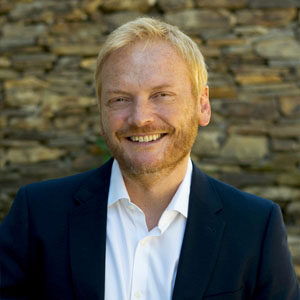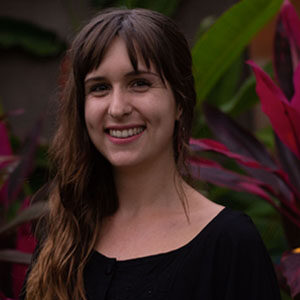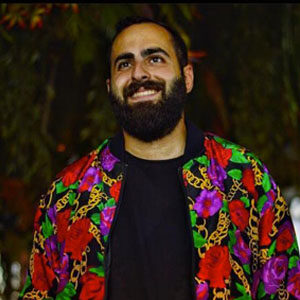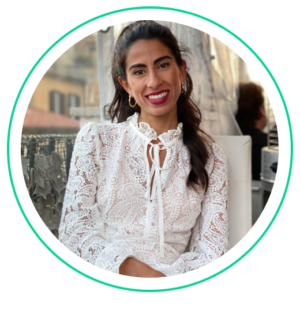The Case Study
Background about the initial version of the narrative:
Sara’s story consisted of two parts that were impacting her negatively; her relationship with food which affected her health; and her definition of success which imprisoned her in the ‘not good enough’ loop. She reached to a point where her story was no longer serving her and that’s when she decided to edit her story.
How have we helped the client:
As story editors, we dug into all the elements that constructed Sara’s story. We identified the characters involved and their contribution to her initial story. We created a deeper understanding of the relationship between Sara and all related elements; and therefore the story.
We then worked with Sara during our sessions on shifting perspectives to compose the new narrative.
The impact on the client from editing the narrative:
The relationship with the key roles and elements involved changed. A full new reality has been created and lived as the client has adopted a new mindset. Sara doesn’t perceive herself as a ‘failure’ nor has an unhealthy relationship with food anymore. We believe a tangible outcome will come as a result of this mindset adoption. Hence, we follow up with our clients from time to time and the editing does not stop at this stage.
Background about the initial version of the narrative:
How have we helped the client:
The impact on the client from editing the narrative:
Sara’s story consisted of two parts that were impacting her negatively; her relationship with food which affected her health; and her definition of success which imprisoned her in the ‘not good enough’ loop. She reached to a point where her story was no longer serving her and that’s when she decided to edit her story.
As story editors, we dug into all the elements that constructed this story. We identified the characters involved and their contribution to Sara’s initial story. We created a deeper understanding of the relationship between the client and all related elements; and therefore the story.
We then worked with Sara during our sessions on shifting perspectives to compose the new narrative.
The relationship with the key roles and elements involved changed. A full new reality has been created and lived as Sara has adopted a new mindset. Sara doesn’t perceive herself as a ‘failure’ nor has an unhealthy relationship with food anymore.
We believe a tangible outcome will come as a result of this mindset adoption. Hence, we follow up with our clients from time to time and the editing does not stop at this stage.
Read the full narrative here!
I was one of the lucky ones…
I was born to a Mexican mother and a Saudi Arabian father. With my father, a successful businessman, still living in Saudi, I spent the first five years of my life with my older brother at my mother’s boutique resort in Mexico. After moving to Lebanon, we were able to see my father more frequently and become more connected to our Arab roots. My upbringing was lavish. I was surrounded by beauty and had a life many would envy: loving parents, wealth, a good education and opportunities for travel and growth. Yet, whilst being blessed by fortune and diversity, both were a double-edged sword, I was torn between cultures, religions, different ways of thinking and experiencing the world, and different expectations. You could say that the same liberties that liberated me, entrapped me with an incessant need to fulfill expectations – and I never felt I did. The friction created by this, the insecurity, vulnerability and fragility caused a disconnection with the self. Who was I?
When I realised I didn’t know, I knew I needed to re-write my story. I needed to edit it so I could align with it. This process pinpointed two central themes: success and belonging. The analysis of both led to an understanding of the story I had told myself. The re-definition of the dynamics that kept that story going enabled my liberation from it. Mine is a story of rejection and resistance to acceptance, and division to co-existence.
Mine is a story of unravelling.
I adored my mom when I was younger. She had a way of moving through each room with such grandeur, the energy that radiated from her was electrifying. I completely idolised her. Possessing a large amount of creative energy from a young age, she prized authenticity and independence above education and adherence to societal norms. For her, success was born through the ability to take risks and leave one’s comfort zone. This courageous, somewhat eccentric approach led her to live nomadically, moving from country to country, learning over a dozen languages and working as an interpreter before finally ‘settling’ with her kids in the resort she built from the ground up. She appeared as a pillar of strength, yet she wasn’t rigid, she was playful and her resilience derived from the magical lens from which she chose to view the world. She’d say, ‘Surrender and it will all come effortlessly’. In Mexico, she fell against the backdrop of a society that celebrated collective happiness; she was certainly not unique in her preference for enjoying life and living abundantly, regardless of financial circumstances. Expressiveness, openness, colourfulness, these are words that spring to mind when I picture my childhood in Mexico. However, whilst she was my Goddess, I hid behind her.
My father, on the other hand, lived far more traditionally. He reflected different ideals and had a different understanding of how success was obtained. Contrary to my mother, he was practical-minded and growth was measured in numbers. From a young age he had cultivated success through determination and was now the owner of an extremely profitable company. As we were the children of his second marriage, I didn’t live with him in my childhood and his influence was filtered through the long-distance phone calls and monthly visits. However, my father’s calls felt like lectures and attempts to have us fit his standards of both cultural norms and success. These standards can be understood as part and parcel of a culture that, though also a collectivist society, puts pressure on the individual to achieve on behalf of the family. In Saudi, this culminates in expectations to meet financial and societal standards, as well as to adhere to (often strict) religious and cultural codes of conduct- if not, you are believed to tarnish the family’s reputation. I didn’t identify with my father’s ideals, nor did I want to conform to his expectations. Even though everything we had was because of his wealth and his wholehearted generosity, I rejected his ideas, and for a long while, him.
And then there was my brother… Just like my mother, all desirable qualities appeared to come to him quite effortlessly. He was naturally intelligent and got better grades. He was ingenious, more individual, more charismatic and to top this off, more rebellious. He had more friends and overall, I felt he attracted far more attention from my mom and everyone else. It was a constant comparison between what he had and what I lacked; I saw him as a person bound for greatness and I, at best, was his little sister. As a result, our relationship was often a huge drain of energy. I was so self-conscious of living in his shadow and so tired of doing so that I both downplayed and isolated myself. It was only in my own company that I could take a break from the painful reminder of my insufficiency and just be. The opportunity to explore myself more freely came when he left for university in America.
My mom said I should be true to myself in order to attract what I desired and gain financial independence, my dad said I should make calculated decisions and invest in my future. My mom said I should take risks, my dad said I should plan. My mom encouraged me to be loud and expressive, my dad encouraged me to be obedient and modest. My mom was spiritual, my dad was religious.
I understood both sides and so desperately wanting to be both sides so that I was someone they could cherish, I tried to follow both. Aspiring for the success of my father, in high school I started my own cupcake business. With undeniable advantages most don’t, my father lent a hand with his (often uncalled for) wealth of business knowledge. I was extremely passionate about baking and loved brainstorming ideas for the brand and strategy but when, speaking to me in his language, he’d ask, ‘How much are you making?’, ‘What’s your business model?’ and ‘What are your scaling plans?’ I would panic. His language was different from mine and despite striving to meet the desired numerical targets, I couldn’t satisfactorily answer him. I tried to avoid all business-related conversations but after some time, the pressure I felt to succeed caused me to doubt my ability so much that I lost steam, became withdrawn and put myself in the mediocre box.
Luckily my mom was there encouraging me from the alternate perspective, ‘You’re thinking outside the box Sarita’. She validated my courage in starting something that may not have a solid, technical plan, but was catalysed by a creative, entrepreneurial passion. Yet, this too had its own problem. In the summers whilst attending university in Dubai, a hunger like my mother’s to leave my comfort zone saw me go to China and learn the language. There, I didn’t need to prove myself with a corporate job, large bank account and Gucci bags and the freedom I gained was intoxicating! For a while, I was more fulfilled. Yet, never quite able to rid the imposter syndrome voice whispering ‘mediocre, mediocre, mediocre’… after a while I couldn’t escape the damaging comparison between my lack of and my mother’s natural knack for languages. I’d self-identified as a slow learner and again, put myself in the mediocre box.
Attempting to follow both examples had led me nowhere. What was the point? Nothing I’d do would ever be good enough and I’d never live up to my full potential. Crippled by these negative thoughts, I indulged in every method of self-improvement I could get my hands on. I just had to be better. This relentless attempt at betterment got me approval for my tenacity and discipline, but took a significant toll in one area. Namely, being the easiest to control, my body. I obsessed over what and when I ate, getting sucked into the promises of every diet under the sun. So much so that thoughts about food occupied too much of my mind. My life revolved around the restrictions placed upon myself and the cravings that would appear with a vengeance as a result. I was trapped. I like being disciplined, I like being skinny. I’m no one if I don’t look good, if I’m not healthy, but… this isn’t healthy. I was in a tormenting cycle of driving myself full force to extremes with no end of self-acceptance in sight.
This unhealthy relationship paired with the inner torment of living between worlds: the confusion, resistance and tension coiled up, knotted my stomach, and thus amalgamated in the digestive issues that plagued my life for as long as I can remember. In this light, the physical symptoms could be understood as psychosomatic. Ever present but most significantly in times of conflict, they were a physical sign of my lack of self-acceptance. Acceptance, however, is not attainable without an understanding of who you are and where you belong. In China I had found a sense of belonging in, essentially, not belonging. A feeling of comfort that was obtained by being unknown, by not needing to have my actions approved. But, as anyone that has lived abroad will know, this freedom often comes without an anchor.
So, what was mine? Spirituality? I’d rejected my mom’s spiritual phrases as fake because I envied her and was incapable of understanding her – it was far easier to denounce it all as a silly fairy tale. Religion? I’d rejected that too in the opinion that it was too often used to control rather than liberate. Materialism? Well, this one’s a little more complex… I enjoyed the cosmopolitan atmosphere, I enjoyed expressing my personality through fashion and I enjoyed the finer things in life like staying in luxurious hotels. However, it’s now clear that I’d been seeking a solution through things, some sense of comfort and satisfaction gained from materialism that over time became a source of guilt; I hadn’t earned these luxuries and more than this, they hadn’t (and wouldn’t) stop the feeling of emptiness that permeated through my life.
Seeking answers to what my standards of success were and where I truly belonged was enlightening. I realized that attempts to meet the expectations of success set by my parents were futile because their standards were theirs. They weren’t telling me I wasn’t good enough. This was my story and my constructed self I had been running from. So, if they had their standards, I needed mine. I’d expected to have a legitimate business by 23 and at 25 I was far from where I’d imagined. But my expectations had been created within a belief that success can be measured in numbers and approved by other’s elusive opinions. On the contrary, in order to succeed by my own definition I had to have enough confidence to detach from the collective consciousness and attempt what felt right to me. When you liberate yourself from attachments to the various images of success you have identified with over the years, other’s approval loses importance and you realise it was only ever an excuse to mask your own fears. Only then is it possible to appear both resolute in your beliefs, and comfortable living in the various shades between black and white. Now I don’t perceive success as a journey towards something. Rather, if it should be viewed as a process at all, it should be one of deconstruction.
Instead of feeling like an emotional rollercoaster driving full force without direction, heavily critical of any move that didn’t fit the way I imagined things had to be, I began to hone in on and observe the turmoil I created by both the fear of being mediocre and the relentless attempts not to be. This fixation on success was both impossible to satiate, and a significant barrier between myself and the possibility of the purest sense of self-actualization. By dismantling the idea of ‘the right way’, realizing that the pursuit of success is futile, and dampening that harsh inner critic, I began to start making choices more aligned with me. Now when something isn’t right, I don’t push but instead allow it to unfold without judgement. In this light, the only real belonging is the belonging between you and life itself. And if you have the ability to be more present with your inner compass, relations with others too get easier.
Instead of defiantly bringing out my claws to whoever threatened my fragile, constructed identity, the need to defend subsided when I found more love and acceptance for being nobody. Through this acceptance I created space to, in turn, accept the differences between my family. I don’t have to feel pressure to adopt their ways, I can choose which elements of each I embrace, and those that I don’t, don’t need to be a cause for division: we can co-exist. My relationship with my family is now far more harmonious and exploring this multicultural heritage is fascinating.
By developing an understanding of the identities I had attached to, felt trapped within or between, and the boxes I had put myself in, I was able to redefine them. By re-calibrating with my spirit and acting more authentically, I was able to find peace and coexistence. But beyond this, there’s something greater… You see, we put ourselves through turmoil trying to create or accept an identity. Then we fight to defend this identity, whether fractured or not, from anyone who questions it. But this identity is just an idea, a construction. By fighting for validation and belonging we overlook the fact that our identities are fluid and by attempting to protect them, we hinder our ability to connect with people and the tactility of life. There is beauty in opulence, I’m not denying that. But, there is seeking lavishness for its identities’ sake, and a certain, special lavishness that lies beyond the visual. This is not to say you can’t enjoy both, but they’re not to be mistaken. The former can be limiting and beyond the latter, beyond the lavishness found in unravelling the knots and being naked, there is nothing more.
My story is no longer an inhibiting one
The Team




Client Testimonial
“Working with EditTheStory was truly revolutionary for me to understand my patterns and their sources. I was truly impressed at how much we dug in the right places to find the true treasures. Finding these treasures is definitely exciting and all, but if I went back to my old story it would feel foreign. This is the magic of EditTheStory. It isn’t like a therapy session where I found out about traumas; it goes beyond that. I feel so grateful to have had a team that catalyzed this process in a way that encompasses everything I’ve been through and helped me see clearly from outside the storm. It’s not about faking it till you make it, it’s about understanding and transforming”.

